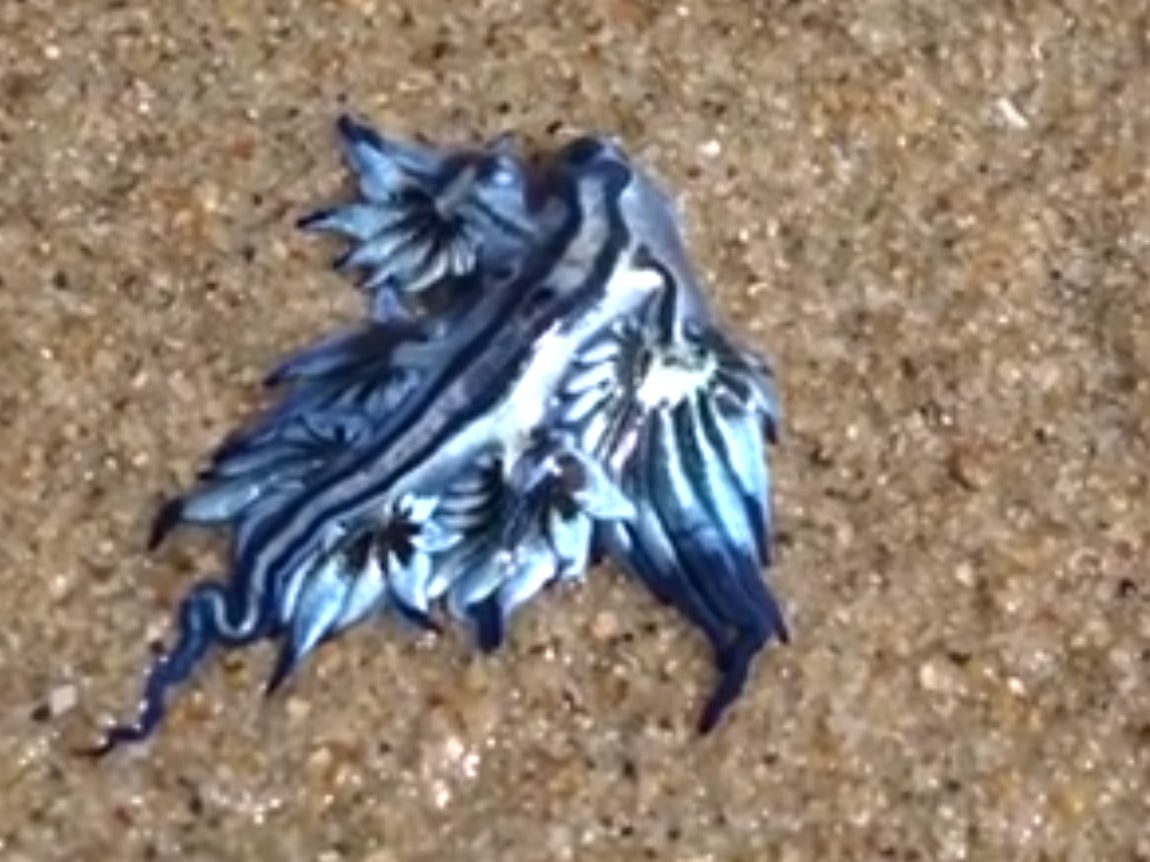.jpeg?width=1200&auto=webp&trim=136%2C0%2C168%2C0)
Tourists were banned from swimming in the ocean in Spain after two toxic tropical sea slugs were found in the water.
The beaches of Guardamar del Segura, in Alicante, were closed this week after two blue dragon sea slugs were discovered.
The creatures, which are around four centimetres long and bright blue in colour, are known for their painful sting which can cause health issues in humans.
Guardamar del Segur’s council stopped tourists and locals from swimming in the water to prevent any health risks.
Swimmers had been warned not to touch the creatures, even with gloves on, and to alert the authorities if they spotted one.

Their sting can cause a series of health issues for humans including nausea, pain and vomiting.
The region’s mayor, José Luis Sáez, wrote on social media on Wednesday: “Red flag on the beaches of Guardamar [with] SWIMMING PROHIBITED after the appearance at Playa Vivers of two specimens of Glaucus atlanticus, known as Blue Dragon.”
He said that a “preventive device” has been put into action to detect possible specimens washed away by the sea currents, while local authorities were keeping an eye on the situation.
Swimmers were advised that if they got itchy, they should rinse with salt water and go to the emergency room or health centre.

At around Thursday lunchtime, he updated residents and said there was now a yellow flag on the beaches, meaning people could swim again.
He said: “Municipal services, police and emergency services, will keep an eye on the situation as it develops.”
Despite their small size, blue dragons eat much larger prey such as the Portuguese man o’ war jellyfish, attacking and feeding off these venomous creatures.
The creatures have light and dark blue stripes, with stinging tendrils that fan out like wings and drift where ocean currents and wind takes them, buoyed by gas bubbles in their stomachs.
The animals are usually found in tropical climates, so had likely been dragged to the area by strong currents.
Watch Spanish army tackle devastating wildfires from the sky in plane cockpit footage
Victims of global terrorism find mutual understanding at Co Antrim event
Wildfires in Spain are setting an alarming new record, according to EU data
Ukraine war latest: Putin-Zelensky summit ‘not ready at all’ in blow to Trump
Zelensky accuses Russia of deliberate attack on US-owned factory
Zelensky condemns ‘indecent’ Russian attack as American-owned factory is hit







